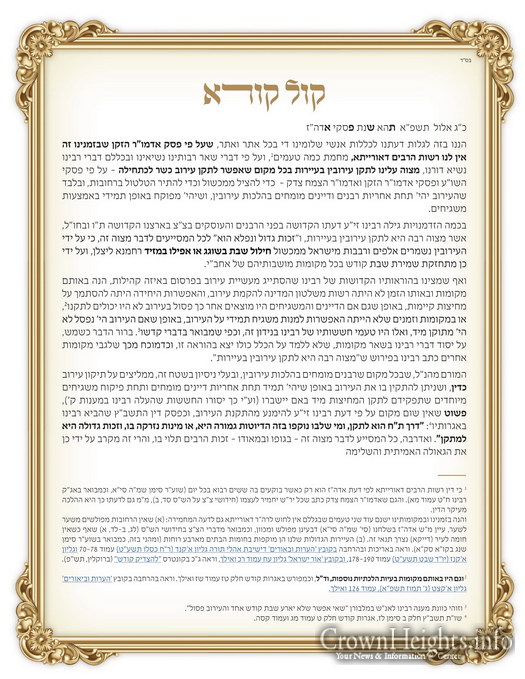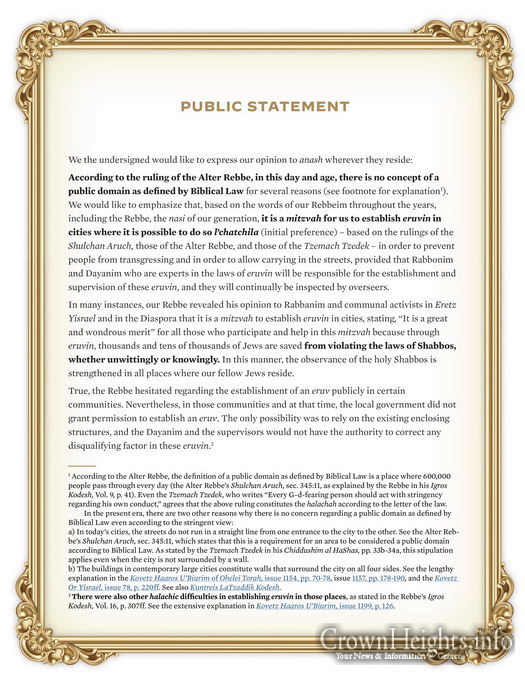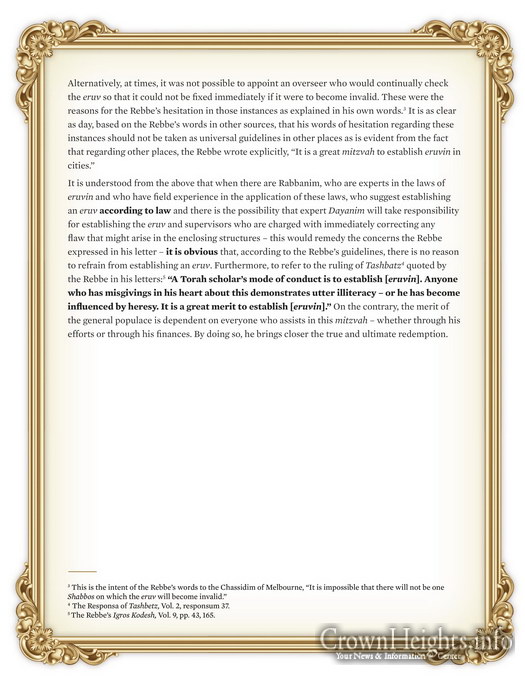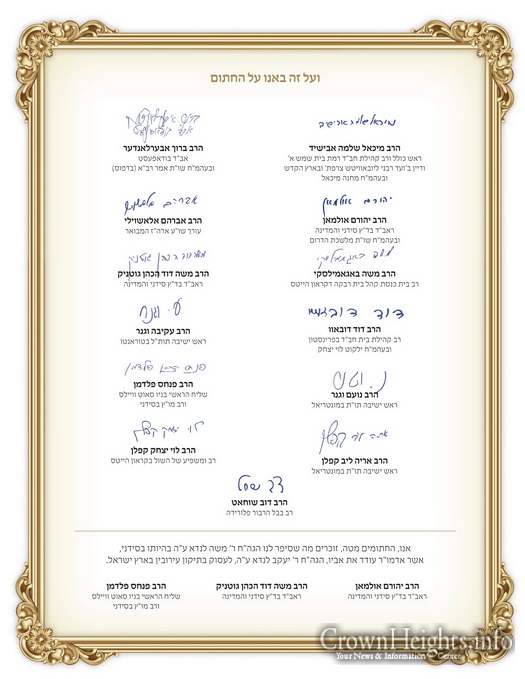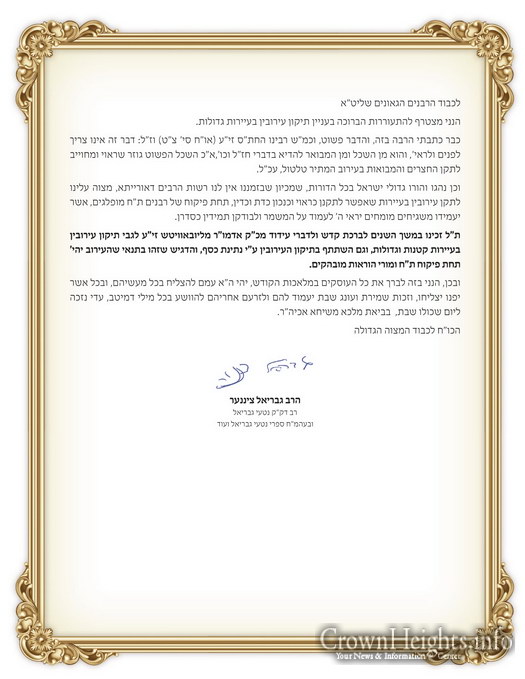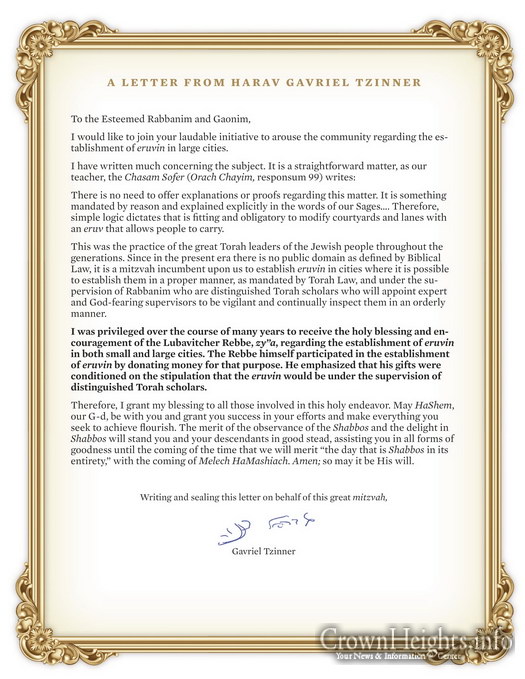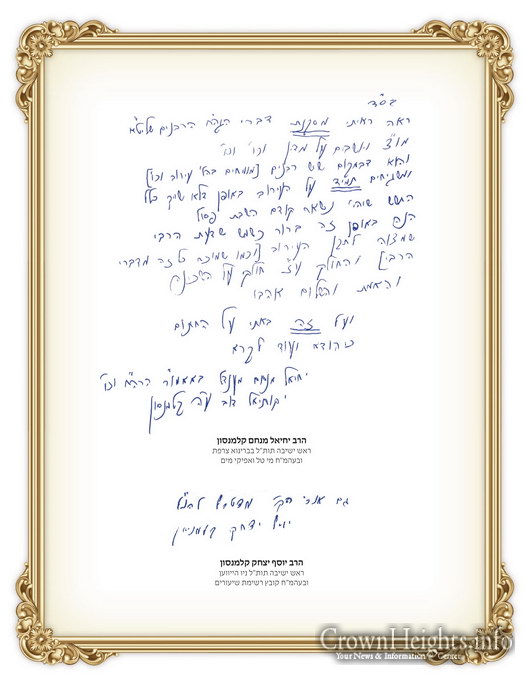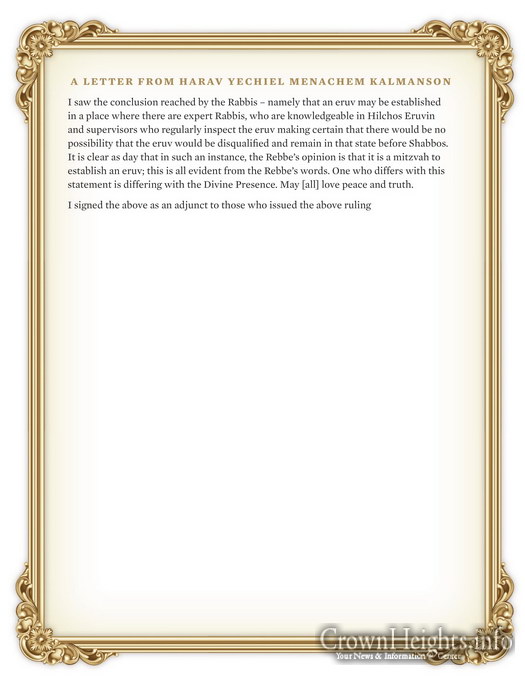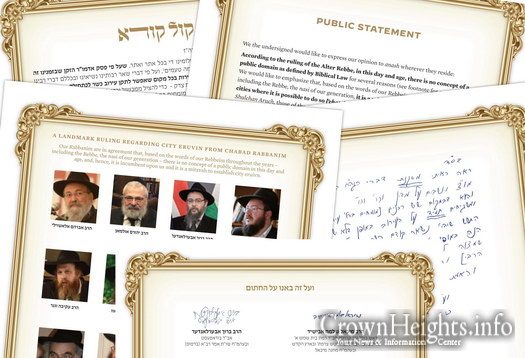
Chabad Rabbonim Clarify Uncertainty Over The Standpoint of Chabad and The Halachic Rulings of an Eiruv
by CrownHeights.info
With the Chabad community facing much confusion and uncertainty over Chabad’s position on the building and use of an eiruv, as well its the Halachic rulings, Chabad Rabbonim across the world came together in a letter to the community to clarify.
“We the undersigned would like to express our opinion to anash wherever they reside,” the letter reads. “According to the ruling of the Alter Rebbe, in this day and age, there is no concept of a public domain as defined by Biblical Law for several reasons. We would like to emphasize that, based on the words of our Rebbeim throughout the years, including the Rebbe, the nasi of our generation, it is a mitzvah for us to establish eruvin in
cities where it is possible to do so l’chatchila (initial preference) – based on the rulings of the Shulchan Aruch, those of the Alter Rebbe, and those of the Tzemach Tzedek – in order to prevent people from transgressing and in order to allow carrying in the streets, provided that Rabbonim and Dayanim who are experts in the laws of eruvin will be responsible for the establishment and supervision of these eruvin, and they will continually be inspected by overseers.”
The letter, signed by Rabbonim such as Harav Gavriel Tzinner, Harav Boruch Oberlander, and Harav Moshe Bogomilsky, covers not just the Halachik reasons that an eiruv is permissible, but also the position taken by the Rebbe on eiruvin across the world.
“In many instances, our Rebbe revealed his opinion to Rabbanim and communal activists in Eretz Yisrael and in the Diaspora that it is a mitzvah to establish eruvin in cities, stating, “It is a great and wondrous merit” for all those who participate and help in this mitzvah, because through eruvin, thousands and tens of thousands of Jews are saved from violating the laws of Shabbos, whether unwittingly or knowingly. In this manner, the observance of the holy Shabbos is strengthened in all places where our fellow Jews reside,” they wrote. They then went on to clarify the hesitation that is sometimes placed on such an eiruv. “True, the Rebbe hesitated regarding the establishment of an eruv publicly in certain communities. Nevertheless, in those communities and at that time, the local government did not grant permission to establish an eruv. The only possibility was to rely on the existing enclosing structures, and the Dayanim and the supervisors would not have the authority to correct any disqualifying factor in these eruvin.”
The Rabbonim then went on to state clearly that “It is understood from the above that when there are Rabbanim, who are experts in the laws of eruvin and who have field experience in the application of these laws, who suggest establishing an eruv according to law and there is the possibility that expert Dayanim will take responsibility for establishing the eruv and supervisors who are charged with immediately correcting any flaw that might arise in the enclosing structures – this would remedy the concerns the Rebbe expressed in his letter – it is obvious that, according to the Rebbe’s guidelines, there is no reason to refrain from establishing an eruv.”
“Furthermore,” They wrote, “to refer to the ruling of Tashbatz quoted by the Rebbe in his letters:5 “A Torah scholar’s mode of conduct is to establish [eruvin]. Anyone who has misgivings in his heart about this demonstrates utter illiteracy – or he has become influenced by heresy. It is a great merit to establish [eruvin].” On the contrary, the merit of the general populace is dependent on everyone who assists in this mitzvah – whether through his
efforts or through his finances. By doing so, he brings closer the true and ultimate redemption.”
